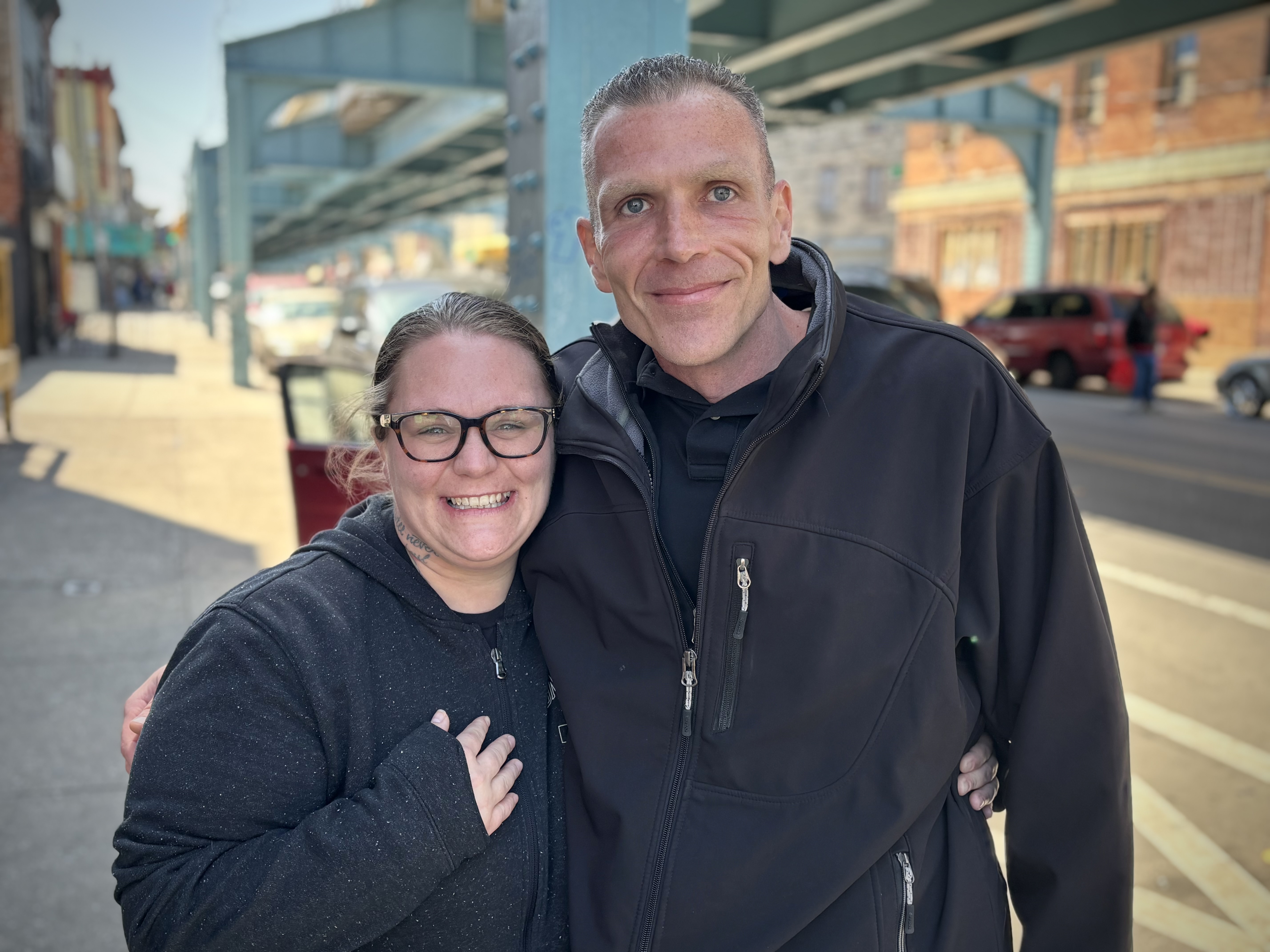
In the darkest days of Vincent LeCompte’s addiction, when family and friends distanced themselves, Prevention Point Philadelphia (PPP) provided him with food, clothing, medical treatment, and HIV prevention supplies with no questions asked. So when—after two decades of homelessness, substance use disorder, and incarceration—he wanted to change, he knew PPP would be there to help.
“They never turned me away,” says LeCompte, 45. “That's exactly why I came here when I got out of prison in 2022, because I knew that they're good people here. They're real good people here.”
I’m still trying to grasp that I accomplished all this.
That day in May 2022 was the beginning of LeCompte’s new life, the day he walked out of prison after yet another stint behind bars, and decided he’d had enough. Today, as he prepares to mark three years of sobriety, he has a full-time job, has earned his Certified Recovery Specialist (CRS) certification, is reunited with family and living with his mother, and is dealing with “privileged problems:” Should I buy a car? Do I want to get an apartment?
“I’m still trying to grasp that I accomplished all this,” he says. Because it wasn’t easy. There were setbacks and struggles throughout the journey. But he always had his eyes on the prize.
“Discouragement is going to come. It's a part of recovery,” LeCompte says. “But what's going to define you is what you do with that discouragement. Do the right thing. Just push through. It’s way more rewarding.”
LeCompte began drinking alcohol and smoking marijuana when he was 13. By 16, he had alcoholism and was using cocaine and acid. At 21, he was living on the streets of Kensington. He spent 16 years of the next 21 in jail and managed 18 months of sobriety before using again. His drug of choice was heroin.

He learned about PPP soon after moving to Kensington. He utilized its many services, including the HIV Prevention and Supply Distribution program, food and clothing, and medical care. When anyone suggested he try to break from his addiction, he balked.
“I would tell (them) ‘No, I’m not ready. I’ll stop when I’m done or I’ll stop when they lock me up,’” Vincent says.
In May 2016, Vincent was locked up “for a nickel bag of dope.” Because of his history and parole violations, he would spend the next five years in jail. For more than a year of that, he was in isolation. During one stretch in solitary, Vincent had a realization:
“I just said, ‘I'm tired of this.’ I was tired of giving people the power to control my life ... I put myself in a position to let other people tell me what to do all the time, and I was tired of it,” he says. “I had a moment of clarity or an awakening: I don't want to live this way anymore, because if I continue to do so, I'm either going to be dead or just sitting in a prison cell like I am now.”
Vincent was behind bars when what he calls “the madness” —the introduction of fentanyl and the skyrocketing number of overdose deaths that followed it—began. New inmates would share horror stories from the outside, telling him, “It’s not the same. People are losing limbs.”
After every prison stint, Vincent went to Kensington to get drugs. In May 2022, he went to Kensington, but not for drugs. He went to Prevention Point and asked for Suboxone.
After that, it would be up to him to stay in recovery, but PPP provided support in keeping medical appointments and finding employment. They stayed on top of his progress, but not in an overbearing way. Instead it was, “Did you make your doctor’s appointment?” and “Have you been taking your medicine?”
“They would tell me, ‘Listen, this is your life. You make the decisions and you have to deal with it. We can help you as much as we can, but when it comes down to it, you’re the one who has to want this for your life and you’re the one who has to deal with the consequences when you do or don’t make the right decision,’” Vincent says. “That helped keep me accountable … I took control of my life back … I would not be where I am if I wasn’t held accountable.”